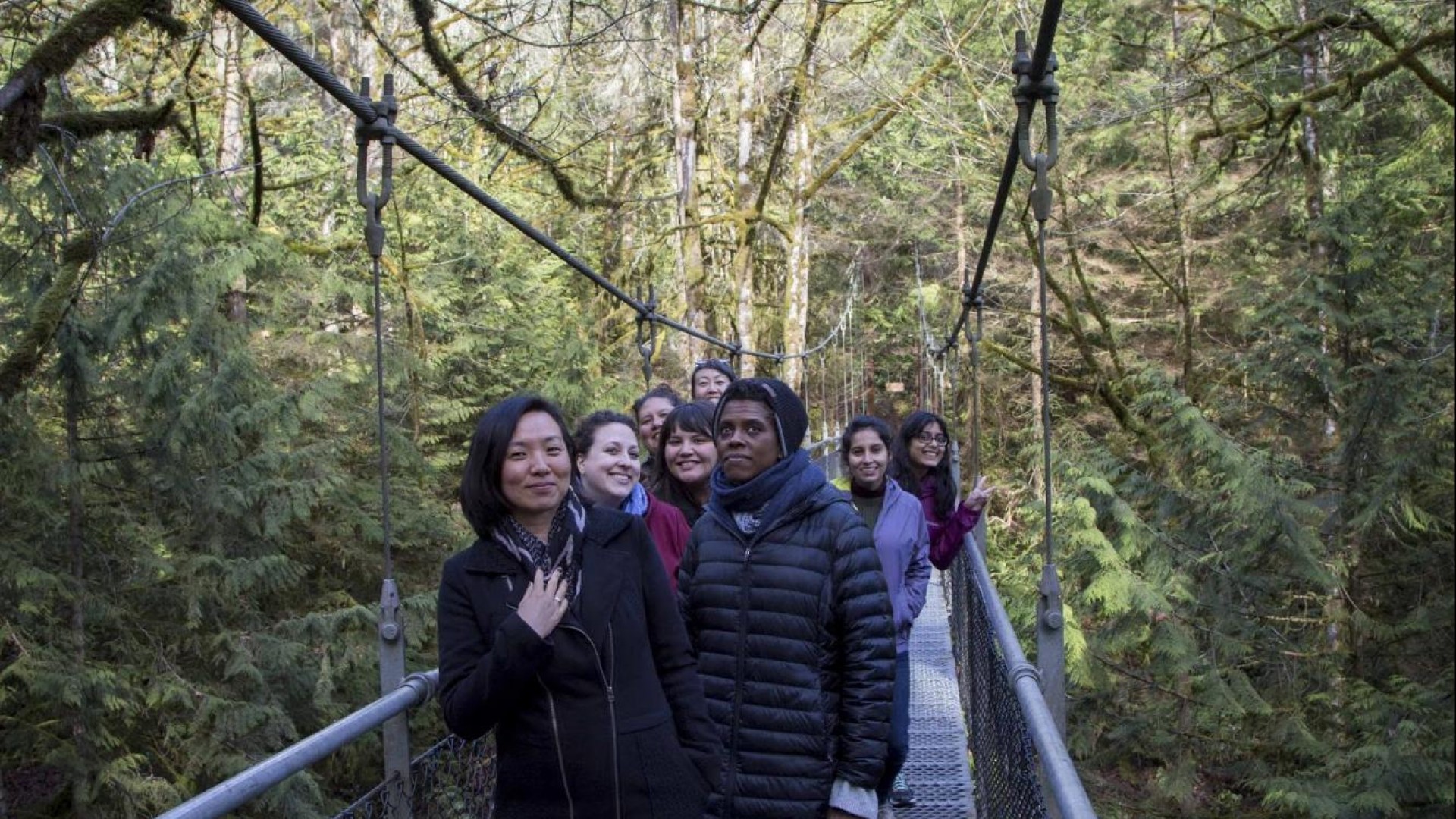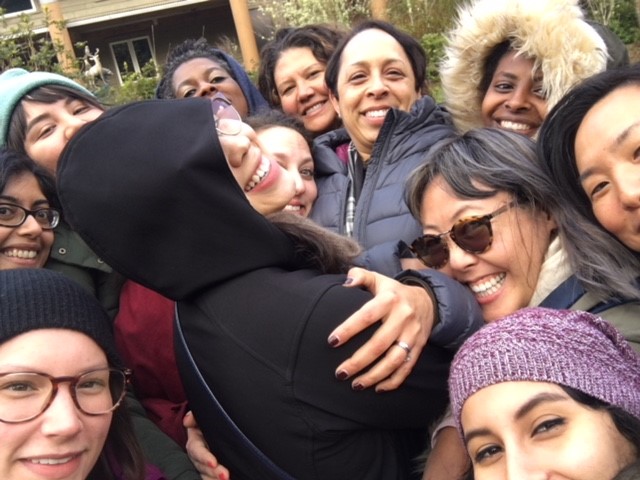
Editor’s note: The Momentum Fellowship, coordinated by Philanthropy Northwest, aims to prepare professionals from underrepresented communities, particularly communities of color, for successful careers in the philanthropic sector. The Momentum Fellowship is part of Philanthropy Northwest’s commitment to Diversity, Equity and Inclusion.
In March, I joined the nine other Momentum Fellows of Philanthropy Northwest for a dynamic two-and-a-half-day retreat. This was our first time reuniting since we met six months ago when we began the Momentum Fellowship. The fellowship has placed us at different foundations across the Pacific Northwest and has offered us programming and network opportunities to jumpstart our careers in philanthropy.
Who Are We?
During our retreat, we shared an immediate excitement and bonded as we rode the ferry on a typical gray and rainy Seattle day to Bainbridge Island. It just so happens that all the Cohort II fellows are women – an important connecting factor. We are a culturally and racially diverse cohort of Native Alaskan/Iñupiaq, African American, Iranian, Latina, Hawaiian-raised, biracial and Asian American women – and came to philanthropy in the Northwest through different paths. One common thread is that we are keenly aware of the inequalities and intersections among race, gender and class – and are starting to navigate this highly privileged and uncommon place of power and resources. While working in philanthropy, many of us continue making impact in the communities we’ve worked closely with in the past.
What Did We Learn?
Besides bonding time and learning leadership skills, I didn’t know what to expect from the retreat. Our coordinator, Maya Thornell-Sandifor, put aside our looming doubts and immersed us in a rich and balanced training with activities led by other thoughtful, highly skilled women (thank you Maya, Mares, Michelle, Jan and Sindhu!). We explored the themes of adaptive leadership, reflective practices, understanding roles and self-care.
Things came together on this beautiful, magical island. It was then when I actualized the reason for pursuing this fellowship. I had left a stable job at a philanthropic institution, moved across the country to an unfamiliar city. My adaptive challenge was both physical/environmental and professional. This fellowship was the opportunity I was yearning for: to take a step back and reflect on my role in philanthropy, engage in deeper intentional learning and move forward better informed on how to best share my skills and perspectives. I am now equipped with more tools and support than ever before.
Supporting People of Color in Philanthropy
Having worked in philanthropy for several years, I’ve had my share of challenges around equity as a person of color. I have personally experienced and witnessed colleagues of color lacking the support needed and having requests for additional resources denied – and ultimately leaving jobs due to subtle racism. Meanwhile, white counterparts seem to easily receive the institutional support, trust, acknowledgment and encouragement needed to succeed and grow. I also noticed that as an Asian American female, I am perceived by some colleagues as a non-racial person unaffected by racism in the workplace.
How do we set up systems for people of color to get continuous support and stability? How do we go beyond simply focusing on diversifying the faces in philanthropy to creating a place where we thrive and see greater leadership in philanthropy? Communities of color are often credited with being resilient in the face of incredible hardship, but we must shift our efforts to address how and where we drop off and get destabilized in the sector and in society. How do we institutionalize and implement equity with good practices and clear policies alongside our fluid culture?
Another adaptive challenge is the need to have deeper dialogues on class and economic inequality in the funding world – especially among ourselves as funders – and chip away at our cultural discomfort with this subject. Can we lead such talks, including what wealth means for people of color in philanthropy? Economic disparity, power structures and access are not marginal issues we can choose to tackle but truly a central part of our work as funders pursuing diversity, equity and inclusion (DEI).
The Value of Professional Support
As I explore how we can use data to push for greater equity in philanthropy during my fellowship, one of the tools I have found incredibly valuable for my development has been the professional coaching included in our fellowship. While I have been lucky to have long-time mentors help me with career and life choices, having a coach partner who holds me accountable and encourages me has been another layer of support and sustenance (thank you Holly!).
As an immigrant (and now an ex-New Yorker), I have always known the necessity in adapting physically and culturally to new environments. With a greater appreciation and understanding of adaptive challenges and reflective practices, I look forward to this journey along with my Momentum sisters. I will continue to engage in self-care, whether they be meditative walks on suspension bridges or wrapping myself up in one big cinnamon roll hug.
